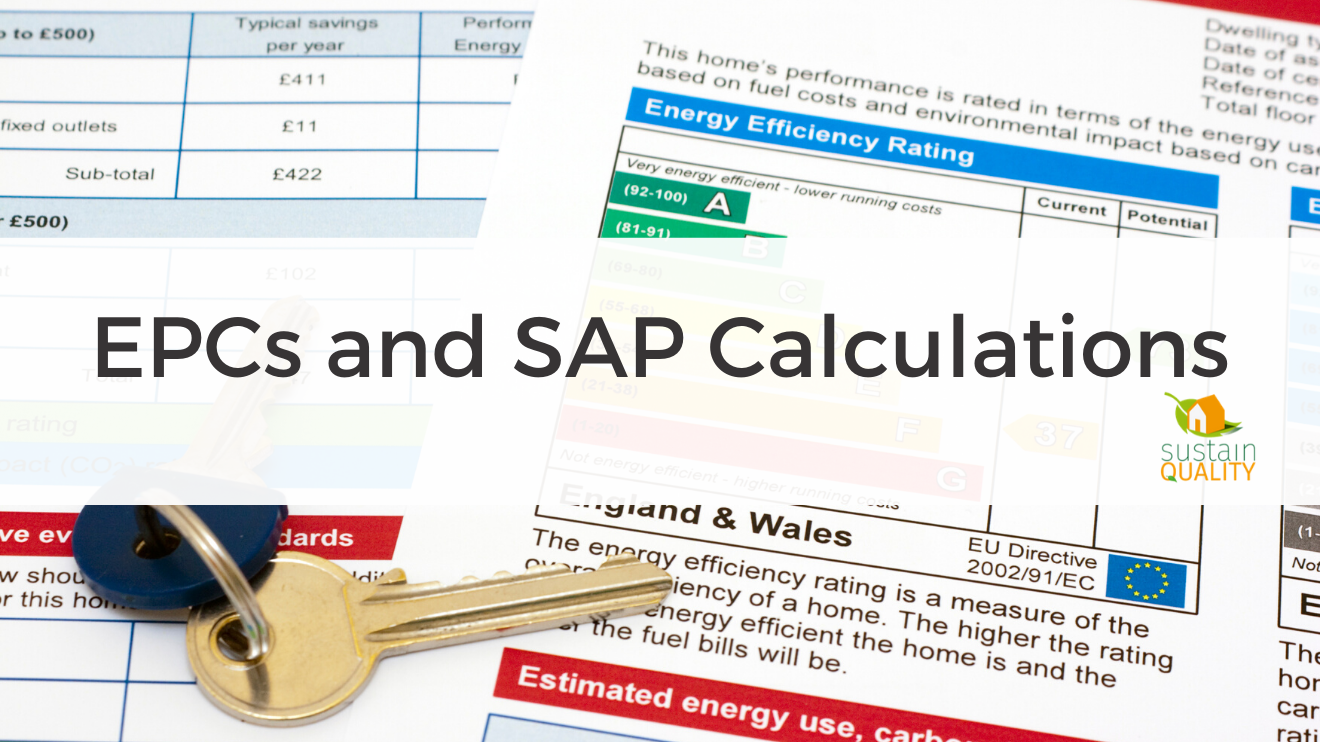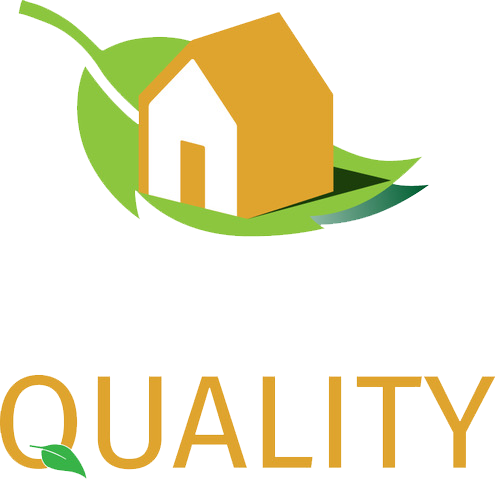EPCs (Energy Performance Certificates) and SAPs (Standard Assessment Procedures) work in conjunction for all new residential properties. The EPC uses the SAP rating to provide an energy performance scale.
As Sustain Quality, we ensure that homes are built for
warmth and energy efficiency, using a detailed and strategic approach.
Read on to find out how SAPs inform the EPC.
What Are SAP Calculations?
We explored this topic in-depth in a previous article. Click here to read more.
In brief, the SAP (Standard Assessment Procedure) rating is
a figure on a scale of 1-100. It indicates a home’s energy performance, or how
much energy it is going to consume based on a standard of occupancy or a
standard of ‘comfort’. Once completed, an indication of fuel costs and
emissions can be understood, and comparisons can then be made between homes.
Normally, there are three stages to the SAP to coincide with
a building project. Firstly, a ‘design stage’ calculation would be required to
ensure that the dwelling can meet building regulations backstops. This ‘design
stage model’ will show that the relevant targets are being met and that the
design model reflects u values and building services that are used on
construction drawings.
Upon completion, the final ‘As Built SAP calculation’ will
be based on As Built drawings, the Air Pressure certificate and a
deflation from the developer that the dwelling is constructed as Designed.
Once the final SAP calculation has been completed, an Energy
Performance Certificate (EPC) can be generated.
What is an EPC? (Energy Performance Certificate)
The Energy Performance Certificate is a document that is
required for all new homes (including self-builds), and for any new home that
is being sold or let. The EPC uses the SAP rating to provide an energy
performance scale. This scale is measured from A to G, with A being the most
efficient.
If you don’t have an EPC for when your home is built, sold
or rented, you risk incurring a fine. However, EPCs are also useful as they
contain important information about the home’s expected energy use and cost.
This, then, provides useful information to the homeowner on how money can be
saved.
The Role of the SAP Assessor
The SAP assessor will use architect’s plans and drawings, together
with detailed information around the building’s construction, heating and ventilation,
amongst other key details. This information will then be input into specialist
software, producing a rating as outlined above.
At planning stage, the assessor will input the building
details and design specification into the SAP software. This will present a set
of reports for the building performance, and one of these reports is the
Predicted EPC. Upon completion the assessor will input all ‘as-built’
information into the SAP software, which will give the EPC (that is lodged with
the government) together with all the other reports.
Once logged, the EPC will be published and available online.
EPCs for Existing Buildings
If you are selling or letting your existing property, an EPC
is required in most cases. An EPC is valid for 10 years or until a newer EPC is
produced for the same building, no matter how many times the property is sold
or rented out during that period.
Existing occupiers and tenants will not require an EPC
unless they sell, assign or sublet their interest in a building.
For more information on the EPC process, read A
guide to energy performance certificates for the marketing, sale and let of
dwellings: Improving the energy efficiency of our buildings.
Conclusion
Would you like to discuss your next project? Don’t hesitate to get in touch with one of our experts today.
If you would like to find out more about our SAP calculation
services or would like to speak to one of our team members about energy advice
for your property, get in touch on 01372 438 039 or fill out the form below and
we’d be more than happy to help.
Did you read our previous blog on, Why Are SAP Calculations
Important? Click here
to read it now.
Want to find out more? Fill in the form below and an expert will be in touch soon!
About Us
We are a friendly team of Engineers delivering Sustainability and Building Compliance Solutions for developments in the Commercial and Residential sectors, which include Energy Statements, Noise Impact and Vibration Assessments, BREEAM Assessments, and Air Quality Assessments in the Environmental, Social and Governance sectors.
Contact us at:
Sustain Quality Ltd
PO Box 393
COBHAM
KT11 3EL
info@sustainquality.co.uk
01372 438039






